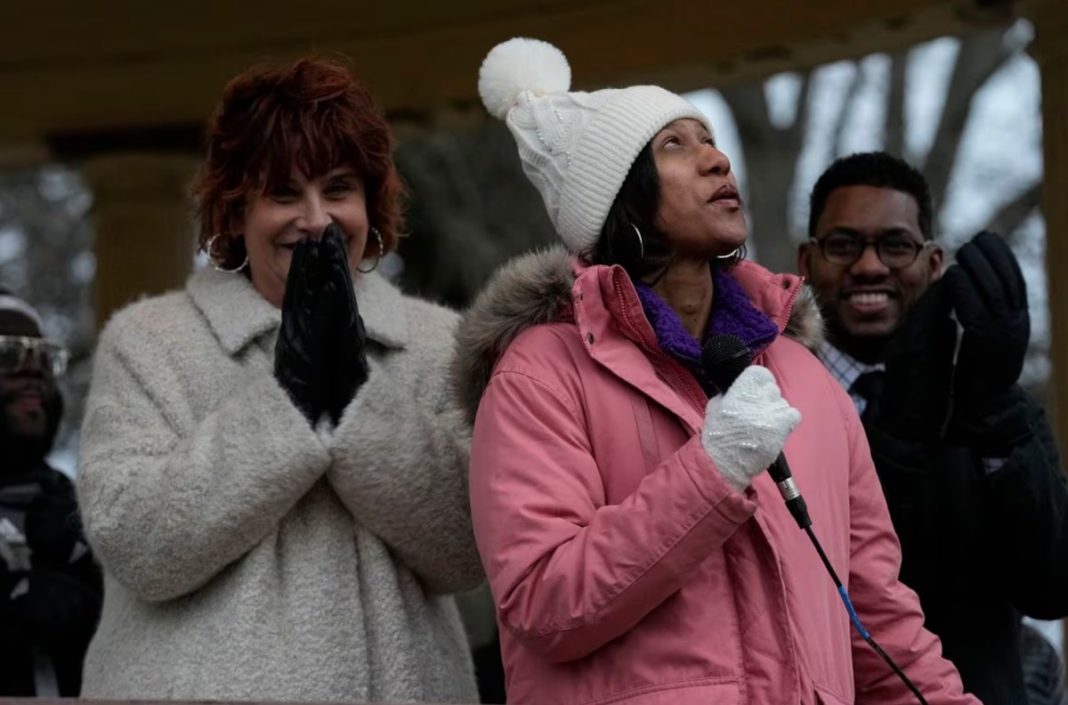WARREN, USA – In a case that has sparked widespread debate on the treatment of pregnant women, particularly Black women, the Trumbull County prosecutor’s office in Ohio announced that Brittany Watts, 33, will not face criminal charges for abuse of a corpse following her miscarriage.
The decision came after a grand jury returned a “no bill,” indicating that there would be no indictment against Watts.
The jury, which deliberated for two days and examined seven witnesses, concluded their assessment of the case surrounding Watts’ miscarriage at 21 weeks and 5 days into her pregnancy.
Watts’ ordeal began with a visit to a doctor’s office where she was informed that her water had broken prematurely, and the baby was unlikely to survive.
Following this, she made several trips to the hospital over three days before miscarrying in her home toilet. An autopsy later confirmed that the fetus had died in the womb.
The case took a turn when Watts, in an attempt to clear her toilet, inadvertently caused the remains of the fetus to be lodged in the plumbing.
This led to a police investigation and her initial charge with abuse of a corpse, a fifth-degree felony.
Watts’ attorney, Traci Timko, highlighted issues surrounding the treatment of pregnant women in the wake of Roe v. Wade’s overturning, noting disparities in how Black women are treated in these situations.
Timko pointed out the hesitancy in the hospital’s response to Watts, attributing it to legal concerns over whether the situation could be interpreted as an abortion.
This incident has brought to the forefront the broader issue of racial disparities in healthcare. Research shows that Black women have a higher rate of miscarriage compared to White women.
The Centers for Disease Control and Prevention (CDC) also reports that Black women are three times more likely to die from pregnancy-related issues than White women, a disparity influenced by several factors including healthcare quality, underlying health conditions, structural racism, and implicit bias.
The outcome of the case against Brittany Watts has raised critical questions about the legal and ethical treatment of women who experience miscarriages and the intersection of race and reproductive health in the United States.







